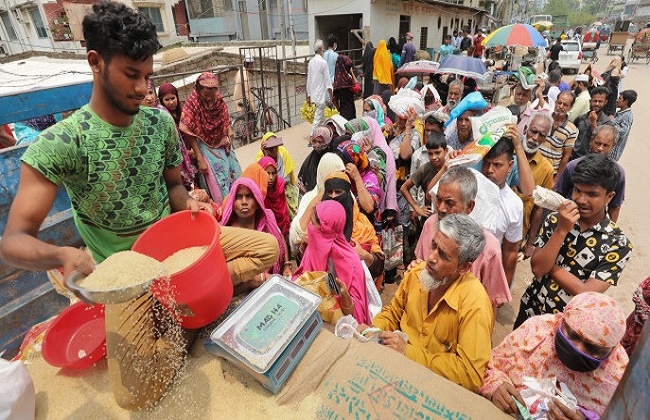
Bangladesh, 14 other countries, is in the red category of food inflation. The World Bank has placed Bangladesh in this category considering the risk of food inflation in the last one year.
Recently, the World Bank has published data highlighting the updated situation of food security in different countries of the world. The organisation publishes this figure every six months. The World Bank publishes the Food Security Report taking into account the food inflation situation for 10 to 12 months.
Bangladesh has been under the pressure of high inflation for two years. Food inflation has exceeded 10 percent. However, inflation has increased in many countries of the world due to the Russia-Ukraine war. Among these countries, big economies including the United States and the United Kingdom have been able to reduce high inflation, but Bangladesh has not yet been able to do so.
Related sources say that the people of Bangladesh have to spend half of their average income to buy food. Poor people spend more on food. Poor people spend about 70 to 75 percent of their income on food.
The World Bank marked the countries in four categories. Countries with a food inflation rate of 30 percent or above are marked as ‘purple’; countries with a food inflation rate of 5-30 percent as ‘red; countries with a food inflation rate of 2-5 percent as ’yellow’ and countries with a food inflation rate of below 2 percent were marked as ’green’.
In Bangladesh, food inflation hit a record 10-year-high to over 12 percent in November last year and overall inflation was also over 9 percent this year till now.
The government provides rice, lentils, edible oil, opinion and sugar to 10 million households at subsidised price through family cards once in a month. The government also sells rice and coarse flour at subsidised prices in the open market. Economists, however, think the government should expand these initiatives since many low-income and middle-class families cannot still enjoy this privilege.
